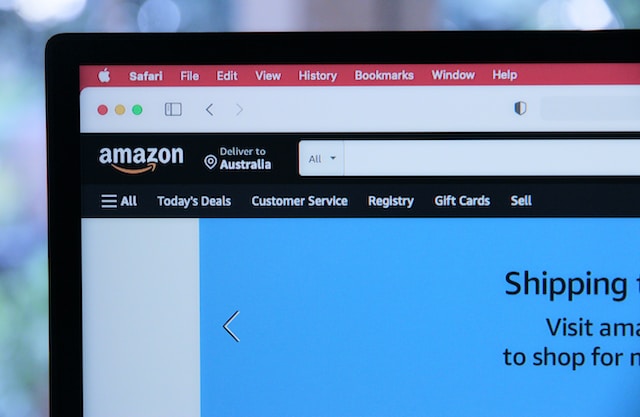6 Ways to Increase Your Conversion Rate and Double Sales
Consumer Behavior | Mar 23, 2024
The primary goal for any eCommerce store owner is to increase sales and grow the business, the best way to achieve this is to strive to increase conversion rate. However, achieving these goals is not always easy, especially with increasing competition in the industry.
So, what is the meaning of conversion rates? Conversion rates are the percentage of visitors to your website that complete the desired action. In eCommerce, this action would be making a purchase. Higher conversion rates lead to more sales, which ultimately leads to growth for your business.
In this article, we will discuss six effective techniques to increase your eCommerce conversion rates and double your sales.
1) Optimize Your Website for Speed and Mobile
In today’s fast-paced world, customers expect websites to load quickly to avoid frustrations and move to a competitor’s site. According to a report by Google, the probability of bounce rate increases as the page load time goes from 1 to 10 seconds.
Therefore, optimizing your website’s speed is essential to reduce your bounce rate and improve conversion rates. Plus, you can save a lot of money and effort with a fast website while implementing digital marketing strategies.
Another critical aspect of optimizing your website is ensuring that it is mobile-friendly. Over 80% of internet users browse the internet through their mobile devices, and mobile traffic accounts for over 50% of web traffic. A mobile-friendly website ensures that you do not miss out on potential customers and provides a seamless experience for all users.
Actionable Advice: Use Google’s PageSpeed Insights tool to evaluate your website’s speed. Also, consider adopting a responsive design for your website to ensure it is mobile-friendly.

2) Implement Chatbots
Chatbots are becoming increasingly popular in eCommerce as they offer real-time support to customers, leading to increased customer satisfaction, loyalty, and sales. According to a report by Juniper Research, chatbots can save businesses up to $8 billion annually.
One of the key advantages of chatbots in eCommerce is their ability to provide 24/7 customer support. Unlike human customer service representatives who work limited hours, chatbots are always available to assist customers, answer queries, and provide information. This ensures that customer concerns are addressed promptly, thereby improving customer satisfaction and loyalty.
Actionable Advice: When incorporating a chatbot into your conversion rate system, it’s important to employ optimization strategies to ensure its efficiency is fully maximized.
Consider implementing a chatbot such as Exceed.ai or Landbot to provide helpful support to your customers.
3) Provide Social Proof
A study by Nielsen revealed that 92% of customers trust recommendations from friends and family over any other form of advertising. Providing social proof on your website helps build trust with potential customers. Examples of social proof include customer reviews, ratings, and testimonials. These elements showcase your products’ quality and reliability and help persuade potential customers to make a purchase.
Customer reviews and ratings are particularly influential forms of social proof. They provide potential buyers with real-life experiences and opinions from people who have already purchased and used your products. Positive reviews can significantly enhance your product’s perceived value, while a high volume of reviews can reinforce the popularity and demand for your product.
Testimonials, on the other hand, offer a more personal and detailed account of a customer’s experience. They tend to be more narrative in nature and can effectively convey the benefits and results of using your product. When displayed prominently on your website, testimonials can serve as powerful tools for building credibility and trust.
Social proof plays a crucial role in influencing e-commerce conversion rates. By integrating customer reviews, ratings, and testimonials into your online store, you can leverage the power of social validation to build trust with potential customers, enhance your brand’s reputation, and ultimately drive more sales.
Actionable Advice: Use plugins such as Proof or TrustPulse to display customer reviews and ratings on your website.
4) Simplify the Checkout Process
Customers today expect a seamless, quick, and easy checkout process when making a purchase online. They value their time and convenience, and any complication or delay in the process can be detrimental to their shopping experience.
A cumbersome or lengthy checkout process can lead to cart abandonment, which is a significant concern for eCommerce businesses as it directly impacts their conversion rates and overall sales.
To combat cart abandonment and increase conversion rate, it is crucial for businesses to simplify the checkout process. One effective way to do this is by reducing the number of steps required to complete a purchase. This could mean minimizing the amount of information customers need to input, consolidating pages, or using progress indicators to show customers how close they are to completing their purchase.
By streamlining these steps, you not only make the process quicker and more manageable but also reduce the likelihood of customers getting frustrated and abandoning their carts.
Another effective strategy to simplify the checkout process is by allowing customers to complete their purchases as guests, without the need to create an account. While having customers create accounts can be beneficial for businesses for future marketing efforts, the reality is that many customers see it as a tedious extra step.
WooCommerce integrations are diverse and could potentially contribute to a streamlined and user-friendly checkout experience in an online store.

Forcing customers to register can deter them from completing their purchase, especially if they are in a hurry or simply not interested in creating an account. Offering a guest checkout option provides customers with the flexibility and convenience they desire, thereby increasing the likelihood of them completing their purchases, therefore increasing the conversion rate ultimately.
By simplifying the checkout process—whether by reducing the number of steps or offering guest checkout options — businesses can significantly increase conversion rates, reduce cart abandonment, and ultimately increase their revenue.
Actionable Advice: Use a plugin such as Checkout Page to simplify the checkout process.
5) Retarget Abandoned Carts
Abandoned carts are a common issue for eCommerce businesses. According to a report by Baymard Institute, the average cart abandonment rate is 69.57%. Retargeting customers who abandoned their carts can help you recover some of those lost sales. You can do this by sending an email or push notification reminding customers of their abandoned cart and incentivizing them to complete the transaction.
Email reminders can be particularly powerful, as they offer a direct line of communication with the customer. A well-crafted email can serve to remind customers of the products they left behind, and perhaps even incentivize them to complete their purchase. This could include offering a discount, free shipping, or a bonus item.
Similarly, push notifications can serve as a real-time reminder for customers, popping up on their devices to remind them about their abandoned carts. These notifications can be personalized and made more engaging with the inclusion of images, product details, and special offers.
Incentivizing customers to complete the transaction is crucial in this process. Whether it is through exclusive discounts, special offers, or simply reminding them of the value of the products they have left behind, incentives can significantly increase the chances of converting an abandoned cart into a sale.
Actionable Advice: Use plugins such as Retainful or Cartstack to automate abandoned cart retargeting.

6) Upsell, Next-sell, and Cross-sell
Upsell, next-sell, and cross-sell are techniques used to encourage customers to spend more money on your website. Each of these techniques is unique in its approach and targets different aspects of the customer’s buying journey, ultimately contributing to a potential increase in sales and revenue.
Upsell is designed to encourage customers to consider a superior or more feature-rich version of the product they are currently contemplating. It is about showcasing the benefits and added value of the higher-end product, making it an attractive alternative.
For example, if a customer is looking at a basic model of a laptop, an upsell would be suggesting a more advanced model with better specs and additional features. The goal of upselling is to convince the customer that the more expensive item provides better value for their money.
Next selling, on the other hand, takes place after a purchase has been made. It is the sales act of following up with a buyer a few days later with an exclusive offer based on the buyer’s original purchase.
It is like offering a sequel to a book that a customer just bought or recommending a special skincare product that complements the one they have recently purchased. The purpose of the next sale is to capitalize on the customer’s recent engagement with your business and encourage them to make another purchase.
Cross-selling, meanwhile, involves suggesting related or complementary products that enhance the usability or effectiveness of the main product the customer is purchasing. This could mean recommending a protective case and screen protector when a customer purchases a smartphone or suggesting a tie and cufflinks to go with a dress shirt.
Cross-selling not only increases the average order value but also enhances the customer’s experience by providing them with a complete solution or package.
Actionable Advice: Use plugins such as Glood.ai or Bold Upsell to upsell and cross-sell related products.

Final Thoughts
Optimizing your eCommerce conversion rates can lead to substantial growth for your business. Increase the conversion rate of your business with Each of these strategies as they play a crucial role in enhancing user experience, building trust with potential customers, and motivating them to make a purchase.
It is important to remember that while these techniques are powerful on their own, they are most effective when used in combination. Continual testing and optimization are vital to understanding what works best for your specific audience and business model.
By implementing these techniques, you stand to not only improve your conversion rates but also establish a strong and trustworthy relationship with your customers, paving the way for sustainable growth and success in your eCommerce venture.
Warning: Undefined array key "sidebar_ads" in /home/dmc/public_html/wp-content/themes/DMC/functions/helpers.php on line 824





